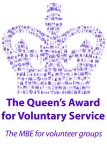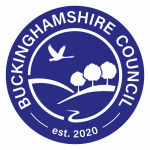Fraud protection involves safeguarding oneself against deceptive practices that can lead to financial or personal harm. Taking positive action to block the routes of communication often exploited by criminals is essential. Being aware of potential threats helps you recognise and avoid them.
Secure accounts: use strong, unique passwords for each account, enable two-factor authentication, and regularly update your passwords. This adds an extra layer of security to your online accounts.
Monitor financial statements: review your bank and credit card statements for any unauthorised transactions. Reporting suspicious activity promptly can help mitigate potential damage.
Protect personal information: be cautious about sharing personal information online or over the phone. Only provide information to reputable sources and avoid oversharing on social media.
Be wary of unsolicited communication: confirm the identity of individuals or organisations before sharing sensitive information or making transactions.
Say ‘No’ to doorstep callers:they might claim to offer services, products, or assistance. Politely but firmly decline any offers or requests, and avoid sharing any sensitive details or signing any documents without thorough verification.
Criminals are experts at impersonating people, organisations and the police. They spend hours researching you for their scams, hoping you’ll let your guard down for just a moment. Stop and think. It could protect you and your money.
If you have been a victim of fraud, you should report it to Action Fraud, the UK’s national reporting centre for fraud and cybercrime. You can call the Action Fraud team on 0300 123 2040 or use the online form on their website http://www.actionfraud.police.uk. Reporting fraud helps track down and stop fraudsters and can prevent other people from becoming their victims.
Remember, falling victim to fraud is never your fault. Scammers are skilled at manipulation, and anyone can become a target. It’s essential to acknowledge that the experience of fraud, even if prevented, can still trigger feelings of vulnerability, anger, or anxiety. Remember, these emotions are natural reactions, and seeking support from friends, family, or professionals can provide a safe space to process them. If you have been a victim of fraud contact Victims First on 0300 1234 148 or through the online form on their website http://www.victims-first.org.uk
Staying informed and taking proactive steps can keep both your financial and emotional wellbeing safe.




